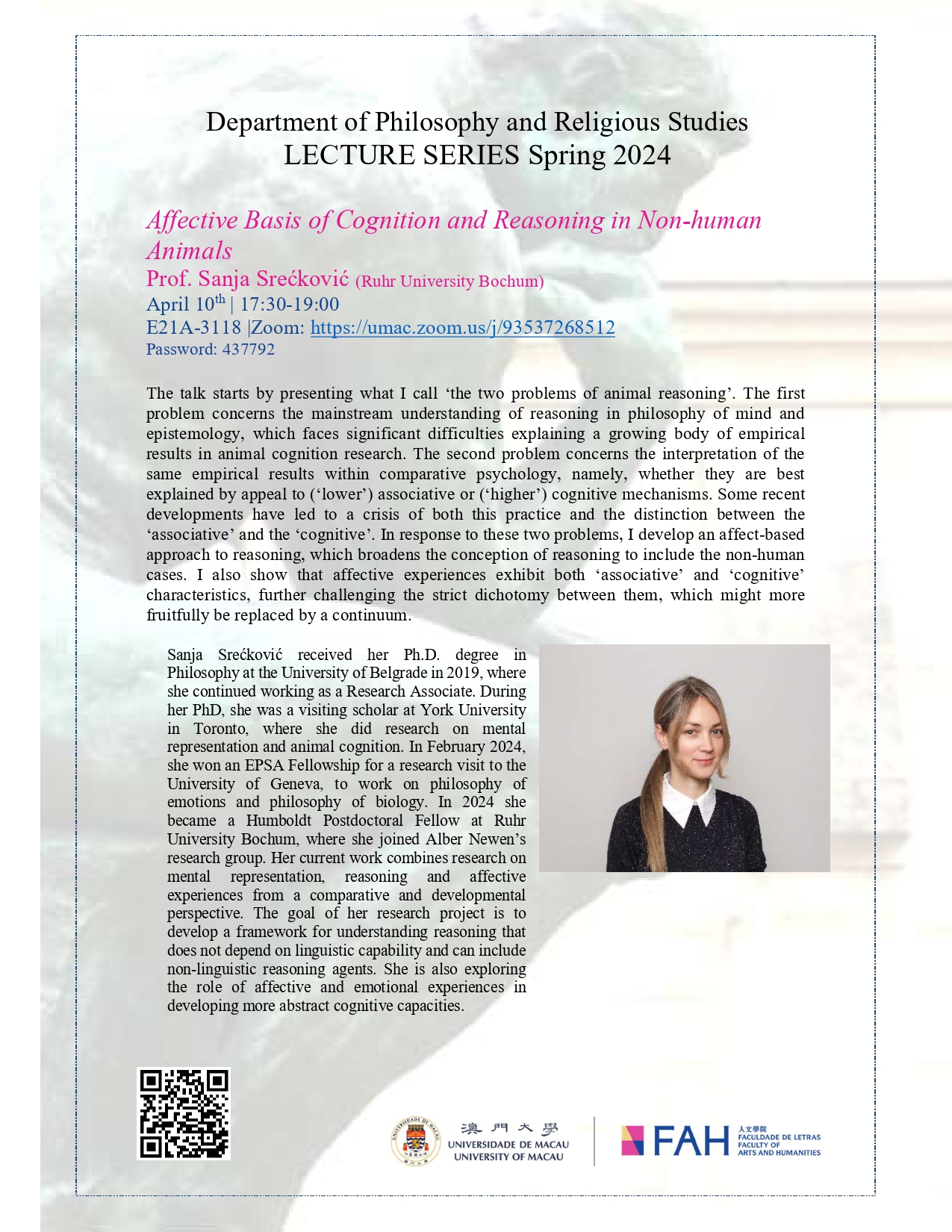

FAH/DPHIL Lecture Series – “Affective Basis of Cognition and Reasoning in Non-human Animals” by Prof. Sanja Srećković, Ruhr University Bochum, Germany
2024-04-10 @ 5:30 pm ~ 7:00 pm
Zoom: https://umac.zoom.us/j/93537268512
Password: 437792
Abstract
The talk starts by presenting what I call ‘the two problems of animal reasoning’. The first problem concerns the mainstream understanding of reasoning in philosophy of mind and epistemology, which faces significant difficulties explaining a growing body of empirical results in animal cognition research. The second problem concerns the interpretation of the same empirical results within comparative psychology, namely, whether they are best explained by appeal to (‘lower’) associative or (‘higher’) cognitive mechanisms. Some recent developments have led to a crisis of both this practice and the distinction between the ‘associative’ and the ‘cognitive’. In response to these two problems, I develop an affect-based approach to reasoning, which broadens the conception of reasoning to include the non-human cases. I also show that affective experiences exhibit both ‘associative’ and ‘cognitive’ characteristics, further challenging the strict dichotomy between them, which might more fruitfully be replaced by a continuum.
Bio
Sanja Srećković received her Ph.D. degree in Philosophy at the University of Belgrade in 2019, where she continued working as a Research Associate. During her PhD, she was a visiting scholar at York University in Toronto, where she did research on mental representation and animal cognition. In February 2024, she won an EPSA Fellowship for a research visit to the University of Geneva, to work on philosophy of emotions and philosophy of biology. In 2024 she became a Humboldt Postdoctoral Fellow at Ruhr University Bochum, where she joined Alber Newen’s research group. Her current work combines research on mental representation, reasoning and affective experiences from a comparative and developmental perspective. The goal of her research project is to develop a framework for understanding reasoning that does not depend on linguistic capability and can include non-linguistic reasoning agents. She is also exploring the role of affective and emotional experiences in developing more abstract cognitive capacities.

